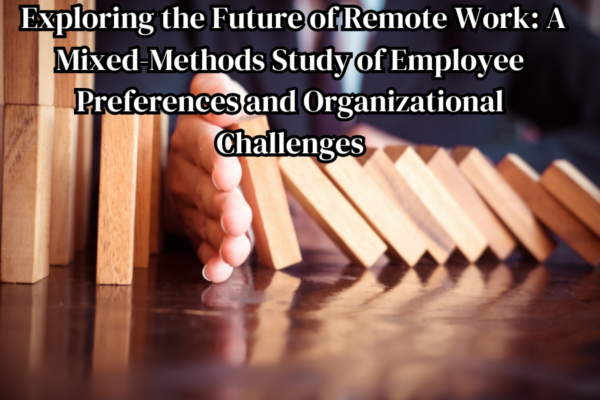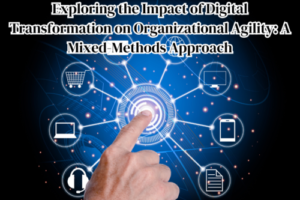Description
Exploring the Future of Remote Work: A Mixed-Methods Study of Employee Preferences and Organizational Challenges
Abstract
As remote work becomes an essential part of the modern workplace, it is significant for organizations seeking to maintain productivity. Moreover, focusing on employee job satisfaction to understand the dynamics surrounding is certainly needed. This study explores the evolving landscape of remote work by focusing on employee preferences and the resultant organizational challenges in such a transition. Questions driving this research focus on how employees view remote work in terms of key criteria. Some of them are work-life balance, communication, and productivity and the challenges that organizations encounter in promoting teamwork and maintaining performance levels.
Moreover, prior research on remote work has noted differences in employee preferences. Instead, it ignores the organizational implications associated with such changes. Despite this, this study addresses an important gap in the existing literature by combining quantitative survey responses with qualitative interviews. This especially helps to acquire knowledge of perspectives both at the individual and organizational levels. Such a mixed-methods approach helps in understanding that nuanced factors play a significant to determining if remote work is significant.
The findings shed significant importance on variance across demographic groups and even job roles in employee preferences. Hence, important implications for the structure that organizations choose to have in place. The hardest challenges were team cohesion and technology access equality. But, these are quite key to maintaining a healthy organizational culture. Therefore, findings underscore the significance of not only adapting to employee needs but also to the requirements of the organization in the changing context of remote work. In addition, to incorporate strategic changes that fit their expectations, organizations can create a work environment that is both engaging and productive. Overall, this research provides significant input to the ongoing discussion on remote work. It furnishes some practical solutions for enhancing employee satisfaction as well as organizational performance in an ever-changing work landscape.
Read more about the topic
The Future of Remote Work: Trends, Challenges, and Opportunities
Investigating Remote Work Trends in Post-Covid-19 : A Twitter Based Analysis
View Other Projects on Remote Work
Exploring Employee Well-being in Remote Work Environments: A Mixed-Methods Study








Reviews
There are no reviews yet.